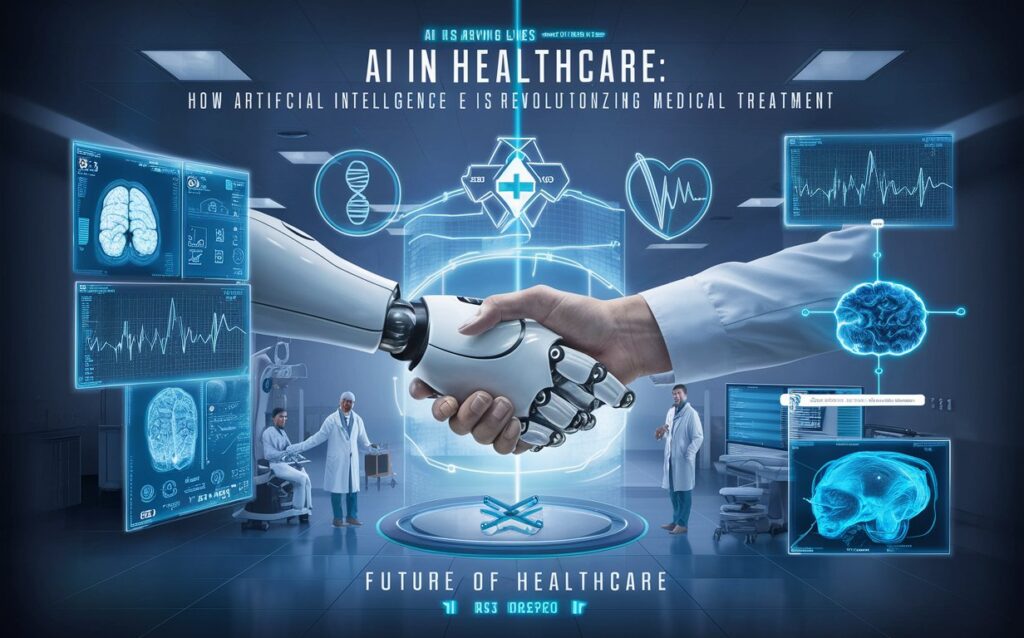🏥 AI in Healthcare: How Artificial Intelligence Is Revolutionizing Medical Treatment

🤖 What Is AI in Healthcare?
AI in healthcare refers to using machine learning, neural networks, and big data to improve medical care. It helps doctors diagnose faster, treat smarter, and monitor patients remotely.
Applications include:
- Disease prediction
- Robot-assisted surgeries
- AI chatbots for symptom checking
- Automated image analysis (X-rays, MRIs, CT scans)
🧬 Faster and More Accurate Diagnoses
AI algorithms analyze medical data and detect diseases earlier than humans. Tools like Google Health and IBM Watson assist doctors with insights based on thousands of past cases.
Examples:
- Detecting cancer from scans
- Spotting early signs of heart disease
- Flagging diabetic retinopathy from eye scans
- Predicting strokes using real-time patient data
🩺 Remote Monitoring with AI
Wearable devices powered by AI track heart rate, oxygen, sleep, and more. Doctors receive alerts if anything goes wrong.
Used for:
- Monitoring seniors at home
- Managing chronic diseases
- Preventing hospital readmissions
- Keeping track of patients post-surgery
🧠 Personalized Treatment Plans
AI analyzes individual genetics, history, and lifestyle to recommend tailored treatments. No two patients receive the same plan.
Benefits:
- Better drug matches
- Reduced side effects
- Faster recovery
- Long-term wellness tracking
💊 Drug Discovery and Research
AI shortens the time it takes to create new medicines. It simulates how different molecules affect the body, speeding up trials and reducing costs.
AI has helped:
- Develop COVID-19 vaccines faster
- Test thousands of compounds in days
- Identify potential treatments for rare diseases
- Improve pharmaceutical safety
🏥 AI in Hospitals and Clinics
Hospitals use AI for:
- Smart bed management
- Predicting emergency room traffic
- Staff scheduling
- Patient flow optimization
Robots assist in surgeries with unmatched precision. AI also helps with administrative tasks like billing, insurance claims, and patient records.
💬 Chatbots and Virtual Health Assistants
AI chatbots are available 24/7 to answer health questions, book appointments, and suggest actions based on symptoms.
Benefits:
- Reduces hospital visits
- Supports mental health with conversation
- Helps rural users access healthcare
- Improves health literacy across age groups
🛡️ Data Security and Ethics
AI also protects patient data by using:
- Encrypted storage
- Real-time breach detection
- Blockchain in medical records
- Consent-based data sharing systems
Ethical AI ensures that health data is used fairly, without bias or discrimination.
👵👶 Benefits for All Ages
AI helps children get early developmental screening and assists the elderly with fall detection and virtual caregivers. It supports all age groups in managing wellness.
🚀 The Future of AI in Healthcare
AI will power robotic nurses, real-time diagnostics, and remote surgeries. Healthcare will become predictive, personalized, and preventative.
Global health systems are investing billions in AI to make care faster, safer, and more affordable.



Post Comment